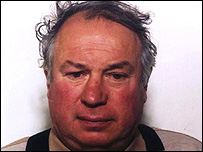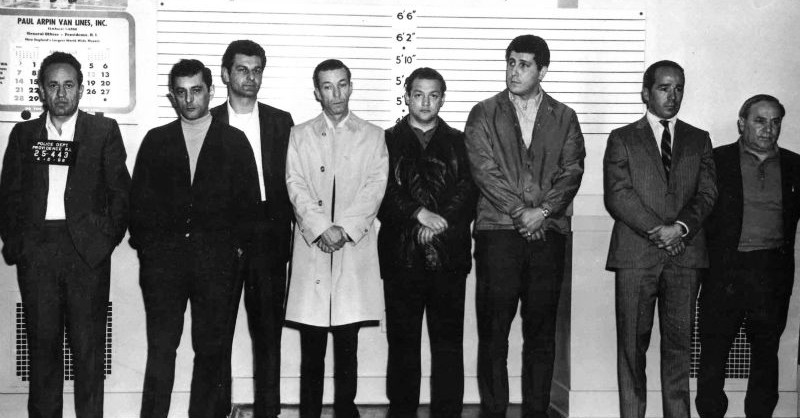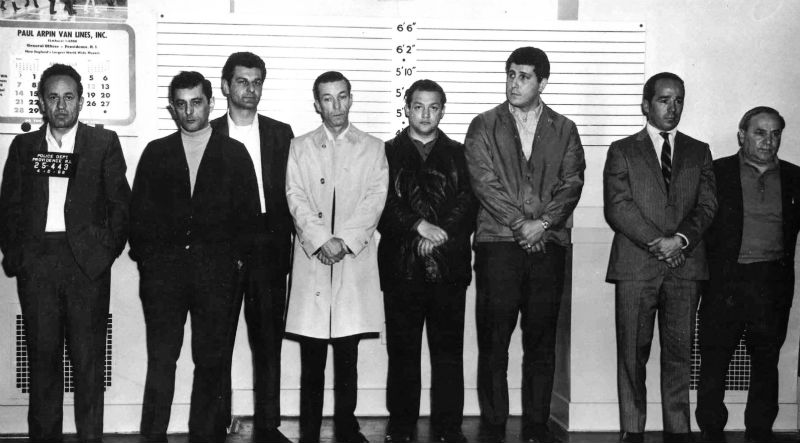Bookseller Steerforth recalls his battles with the bibliokepts – both oddball amateurs and professional book thieves…
In his memoirs, Jeffrey Bernard used to talk about the distinct social groups that frequented his regular pub, the notorious Coach and Horses in Soho. Alongside the actors, stage hands, dancers and drunks, there were the book thieves.
The book thieves were professionals who often stole to order, selling their stock to a bookseller in Charing Cross Road. They were only paid a fraction of the retail price of the book and in order to achieve a living wage, they had to steal at least £50,000 worth of stock per year. In most cases, they took a lot more.
Getting caught was an occupational hazard and the thieves with previous convictions could expect a short spell in prison, but once the sentence was served they’d be back in the shops doing what they knew best.
One of the most notorious book thieves in London was a man called Roy Faith. When he died, a store detective company sent a representative to his funeral as he’d done so much for their business. A short, plump man with sunken eyes and a bald head that had a few strands of dyed jet black hair across it, Roy’s speciality was art books. He always made two visits to a shop. During the first he would choose the books he was going to steal – nothing under £30 – and pile them up somewhere where they wouldn’t be spotted. After leaving the shop empty-handed, Roy would wait for half an hour and return when the staff were too busy to spot him. It only took Roy a minute to discretely nudge the pile of books into his huge holdall and he was often out of the door before anyone had noticed.
Perhaps Roy was nice to his dog, if he had one, but he didn’t come across as a particularly pleasant individual. When a female member of staff asked him to leave, he called her a c*** and pretended that he was going to headbut her. I mistakenly assumed that he was the sort of person who only threatened women and the next time I saw him, I tried to play the hard man: ‘Come on then, call me a c***.’ Roy looked at me with barely disguised contempt and replied ‘Alright then, you’re a c***’ then took a half-hearted swing at me. I ducked and he missed.
From then on, our encounters became increasingly childish with both of us trying to do everything we could to frustrate the other. The last time I saw him, he was on the train to Brighton, probably combining a bit of thieving with a nice day at the seaside.
Another thief, known as Barry, specialised in stealing the Times Atlas. At £75 each, these atlases were very attractive to thieves and the only thing that usually stopped anyone taking them was their enormous size, which made them almost impossible to conceal. They didn’t fit into carrier bags or holdalls without a considerable effort, but Barry had devised a solution that was almost worthy of genius. He had customised a raincoat with Times Atlas-sized pockets on the inside and was able to steal two at a time. The more astute members of staff usually challenged the strange man with two large book-sized lumps in his coat, but he must have succeeded enough times to make it worth his while.
Unlike Roy Faith, Barry did have some personal charm and when caught, he would smile sheepishly like a little boy caught scrumping.
After a while I became quite good at spotting the biblioklepts. Sometimes they gave themselves away through their body language, other times it was their appearance. One thief was dressed as a respectable businessman but his shoes were shabby and when I scrutinised him further I could see that he was wearing a charity shop suit. Our eyes met and he realised that he’d been rumbled. Later I mentioned this incident to someone in another bookshop and they said ‘Ah yes, the Businessman.’ He was well-known.
The most successful thieves were, of course, the ones we never saw. Someone used to steal entire shelves of books during Thursday lunchtimes – one week it was Nabokov, another Terry Pratchett – presumably in order to furnish another bookshop. Although we became obsessive about checking everyone who entered the shop, we never caught them.
Occasionally we were provided with undercover store detectives, most of whom stuck out like a sore thumb in affluent Richmond. We also employed a paranoid ex-policeman who seemed to believe that everyone was a potential criminal and used to stalk perfectly normal people until they felt so uncomfortable, they left the shop.
Prosecuting book thieves was never an easy business. I once caught someone outside our shop and called the police. I spent the rest of the day waiting with some unsavoury characters at the local police station, only to discover that they were under the impression that I was the culprit.
 However, in 2004, the king of book thieves, Ronald Jordan, was successfully prosecuted at Southwark Crown Court. Jordan specialised in stolen travel guides, particularly the Lonely Planet and Rough Guide series, selling around 35,000 books a year. Like a modern-day Fagin, he had a gang of ne’erdowells who ensured that Jordan had a constant supply of stock. When his premises were raided, the police found 17,500 books – more than the entire stock of a small independent bookshop.
However, in 2004, the king of book thieves, Ronald Jordan, was successfully prosecuted at Southwark Crown Court. Jordan specialised in stolen travel guides, particularly the Lonely Planet and Rough Guide series, selling around 35,000 books a year. Like a modern-day Fagin, he had a gang of ne’erdowells who ensured that Jordan had a constant supply of stock. When his premises were raided, the police found 17,500 books – more than the entire stock of a small independent bookshop.
When Jordan was finally caught, booksellers across the southeast of England breathed a collective sigh of relief.
However, by the time that Ronald Jordan was prosecuted, book theft was already in decline. The advent of security systems and CCTV helped, but the biggest factor was the internet. What point is there in stealing a £50 art book if it’s selling for £20 on Amazon? And I expect that Google Earth probably didn’t help Barry, with his Times Atlas-sized pockets.
Of course, books are still stolen, but the thieves are now mostly drug addicts and opportunists. The golden age of book theft has passed.
It used to be even worse in medieval times and many books had to be chained to the wall. Here is a curse that was used at the time to deter would-be thieves:
This present book legible in scripture
Here in this place thus tacched with a cheyn
Purposed of entent for to endure
And here perpetuelli stylle to remeyne
Fro eyre to eyre wherfore appone peyn
Of cryst is curs of faders and of moderes
Non of hem hens atempt it to dereyne
Whille ani leef may goodeli hange with oder.













Once I heard a local bookseller give somebody a fuller guide to the local used bookstores listed on pamphlet. One store, he said, got by on what were purportedly review copies but in fact stolen.
Another time, I heard the manager of a store discuss an encounter with a thief. After harassing the man into emptying each last pocket, he told him to leave. The man paused by a table near the door, and on being told again that he must leave, said something like “But I just wanted to look at this”. The manager’s reply was “You don’t understand, do you? Get out.”
I regret to say that both stores are gone. The manager of the used bookstore still sells prints on line, but says on the site that he got tired of gambling his retirement money with bad odds. The other store became a video rental establishment, which 25 years ago might’ve seemed the wave of the future. I think a Starbucks is there now.
Kudos to the atlas pilferers! It’s like the security-taged lamb shoulders you see at the supermarket, I am always curious as to how people would be able to secrete such a large lump of lamb about their person without it being ridiculously obvious
A friend was in a grocery store line and saw a ham fall out from under a woman’s skirt. Said woman immediately yelled, “Who be throwin’ ham?”
I quite liked Barry, the atlas thief. He was more of an Ealing comedy villain, unlike some of his more menacing colleagues. If you caught him, it was a ‘fair cop’ and he left.
Not everyone was as amenable as Barry. One colleague chased a thief out of the shop and ended up following him down a blind alley. The culprit suddenly stopped, crouched down, opened his holdall and took out a large metal bar. Luckily, my colleague had the good sense to make a hasty retreat.
It would be a shame it if turned out the late author of the Wheel of Time series was actually a thief, as it appears to say in the third to last paragraph.
I rather like the idea of it being Robert instead of Ronald Jordan. Perhaps the Wheel of Time novels were just a ruse to get booksellers to drop their guard, so that Jordan steal with impunity.
I meant “so that Jordan COULD steal with impunity”.
(Note to self: proof read comments before posting)
I am a librarian in Benidorm. A few years ago we had a reader who read all kinds of books: philosophy, mathematics, biology, statistics, sociology .. seemed a real wise man … except for the fact that he returned them very quickly and had clear signs of mental illness. A few months after his father returned us hundreds of books he had stolen from the library over the years. The kept them in his closet.
I worked for a few weeks in a Borders in London during their Christmas sale. Theft of books was relatively low compared with DVDs and CDs and seemed to be done by people who wanted the books for themselves.
With the possible exception of big-ticket items like atlases, the only books with security tags in them were graphic novels along with stuff like Hunter S Thompson, Bukowski and anything else that disaffected youths might fancy pinching. A form of literary profiling, I guess.
On a side note, the most returned items were Rough Guides and Lonely Planets. Returners (who tended to have the receipt) would say the book had been bought for them as a present. The truth was clearly that people had bought the guides as part of inspiration for an escape plan but then come back for their £12.99 or whatever when they realised, “Sod it, I’m never going to get out of here…” Was kinda depressing.
I worked in Foyles and Blackwells on Charing X Road, and also at Hatchards in Piccadilly in the nineties and this bought back lots of memories, including Silas, the store detective with the quietest footfall of any man on the planet. The amount that was pilfered at Foyles paled into insignificance compared to what the staff were taking and (as we found out later) what the management were stealing.
When I first started at Foyles there was a guy who was the ‘straightest’ staff member, or so I thought, because he never took anything. This was at odds with his personality and his fraternising with those who did, so when he finally got sacked, I asked him why I’d never seen him do it. He said that it was because his bedroom had run out of room and was piled floor-to-ceiling with boxes, with only a corridor from the doorway to his bed! He then set up a ‘second-hand’ book stall and started a publishing business with the proceeds…
Chris – Yes, some booksellers were up to it too. I tried to remove the temptation by letting staff borrow books, on the condition that the books were returned in pristine condition. I also tried to get free copies from publishers if I knew that a bookseller was a particular fan of an author. I think good morale, decent staff discount and an observant manager are the best ways to stop stock going missing.
Ben – Yes, there was a lot of profiling behind the tagging of books. All of our graphic novels and true crime titles were tagged, plus a selection of travel, fantasy, art and high value items. But I felt that an observant staff member was still the best weapon. Even today, as a customer in shops, I can spot the shoplifters by their body language.
In the Stirling University branch of John Smith & Son Glasgow Ltd (long since extinct) , we always had store security during the first two weeks of term in the seventies. The ‘detectives’ looked more like extras from a movie about the DDR but student book thieves are not amongst the most observant of criminals. Security always needed a more of staff with them when the confronted suspects and one day one of our regular detectives came to get me from the staff room during my lunch break. I asked her who I was witnessing but she told me she had already detained the thief with another staff member and just wanted me to see something. We went into the backroom where a rather subdued but well dressed young man was sitting on a stool. “Show him the book,” ordered the detective. He held it up. The title of the book was “Shoplifting”, a sociology book that he claimed to need for his course.
I saw him again about eight months later when he came into the shop on a quiet Saturday morning. He told me and the other staff that the whole Scottish Court experience had been scary, with our Procurator Fiscal, but interesting enough to provide the basis for his doctoral thesis.
The only book I ever shoplifted was taken from that Stirling Uni shop, I suffered agonies of remorse for weeks after.